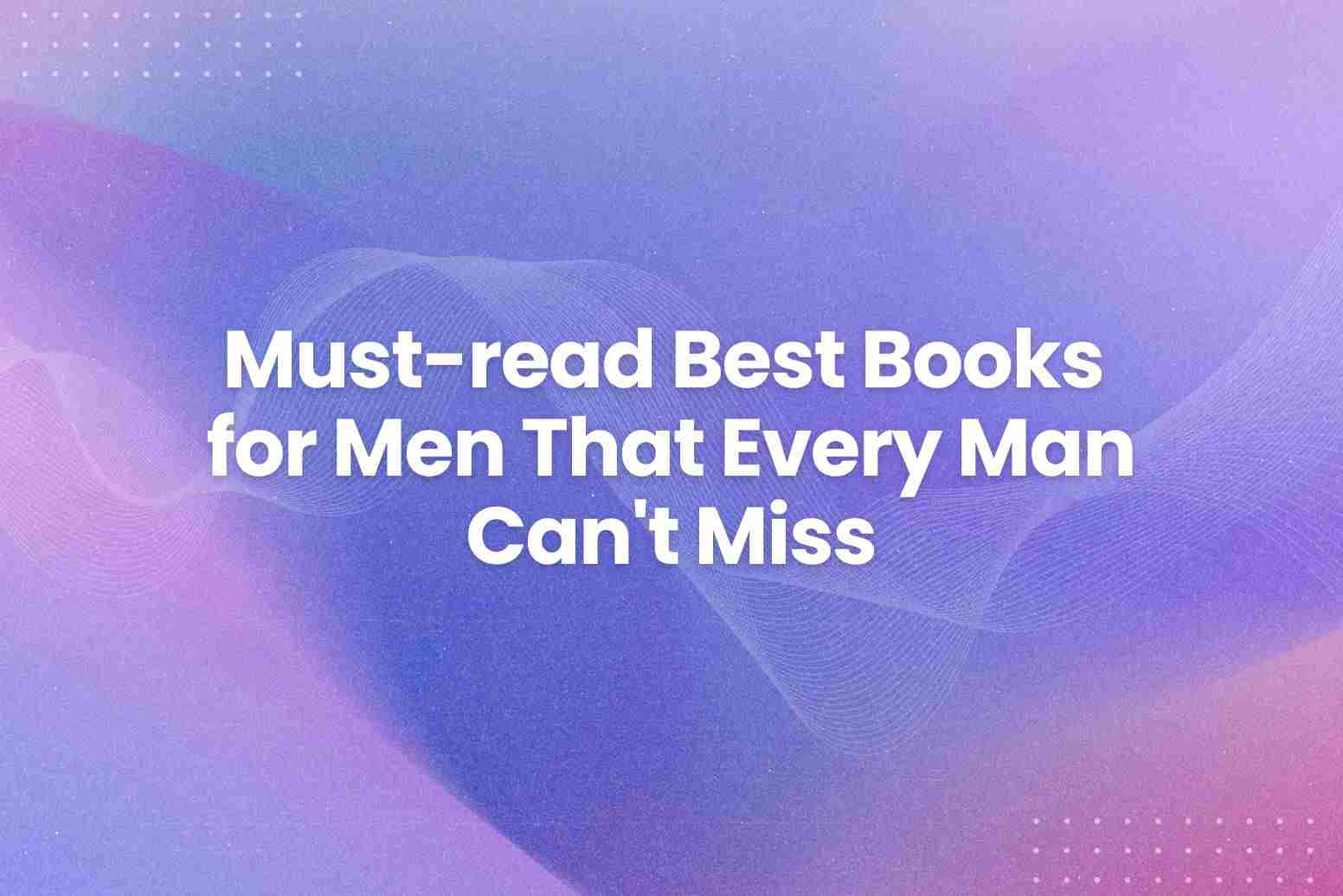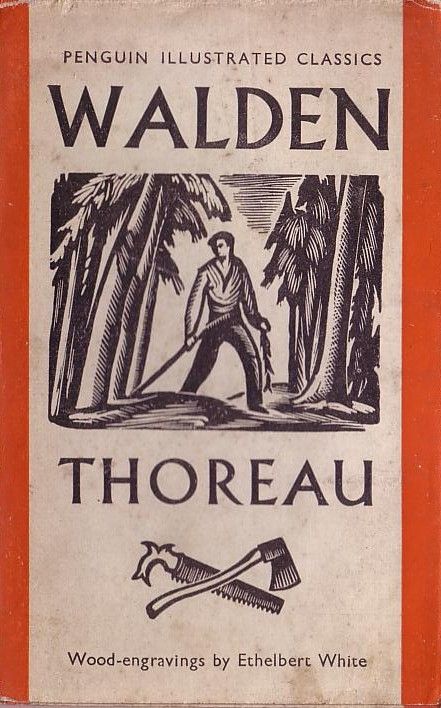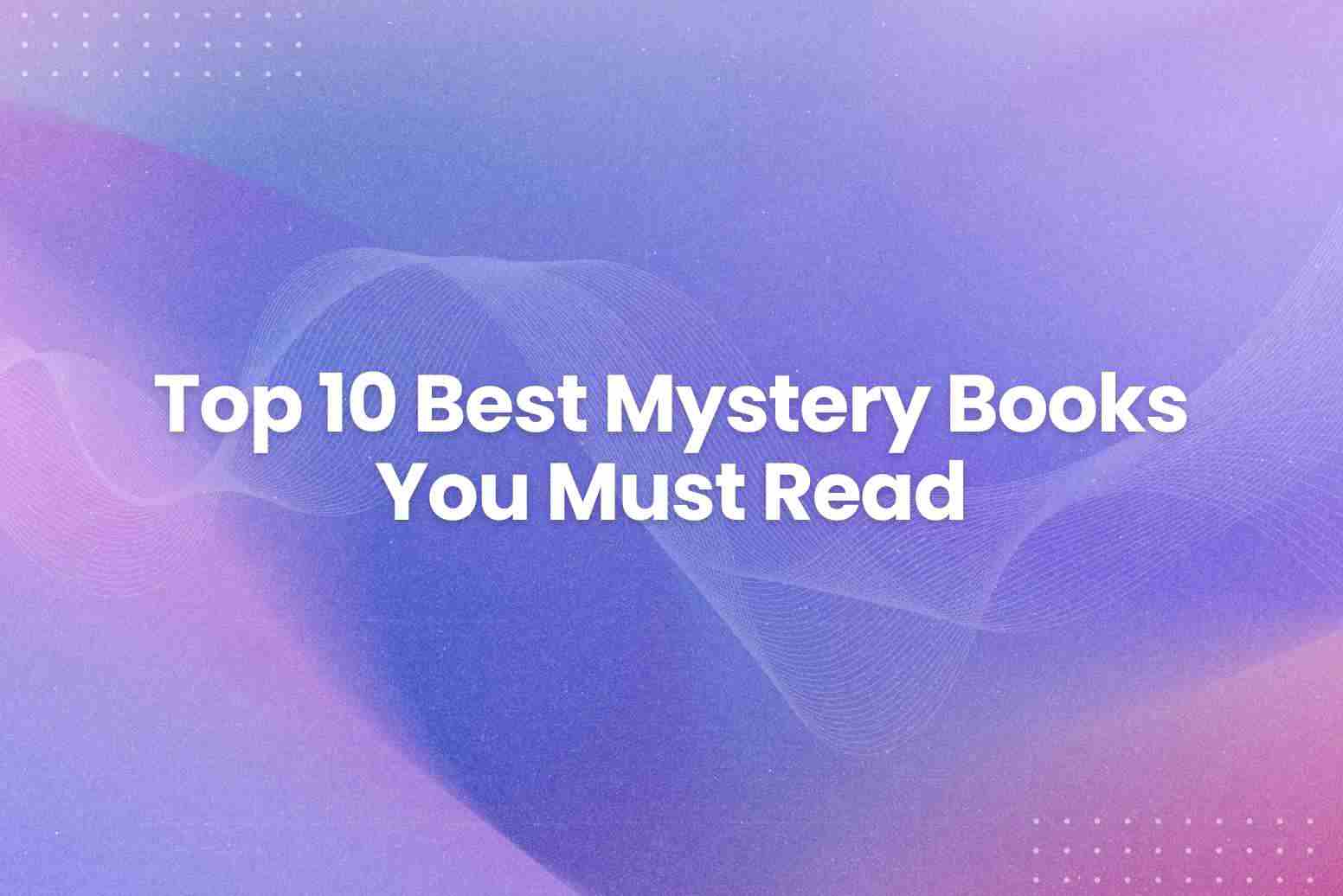The best books for men are not always what you would consider “manly.” At their root, the books that men should read offer a lesson that improve life and overall wellbeing. Consider this list of 25 best books for men we provide as a starting point. These are the books you’ll keep thinking about long after you’ve finished the last page. The best books for men provide cognitive leftovers that you’ll be chewing on for years, and decades, to come.
Love reading? Give our AI tool Arvin a try! Arvin makes book summaries concise and engaging,
allowing you to grasp the key themes and insights of any book quickly. Also, it assists with writing tasks, compares literary works, and shares comprehensive opinion. Discover your next read with the help of Arvin!
Don’t miss: 10 Best Selling Books of All Time to Discover Timeless Wisdom

Hard Times by Charles Dickens
Utilitarianism comes in different forms, though often not as obvious the one Dickens’s Mr. Gradgrind employs. While not Dickens’s most well-known work, it is the one that feels like it has the most to teach us. This is especially true in a time when economic hardship and ingrained old world prejudices keep people from exploring their potential. His presentation makes it clear exactly who the victim of Utilitarianism is. And it’s hard not to have even a small bit of personal reevaluation by the end.
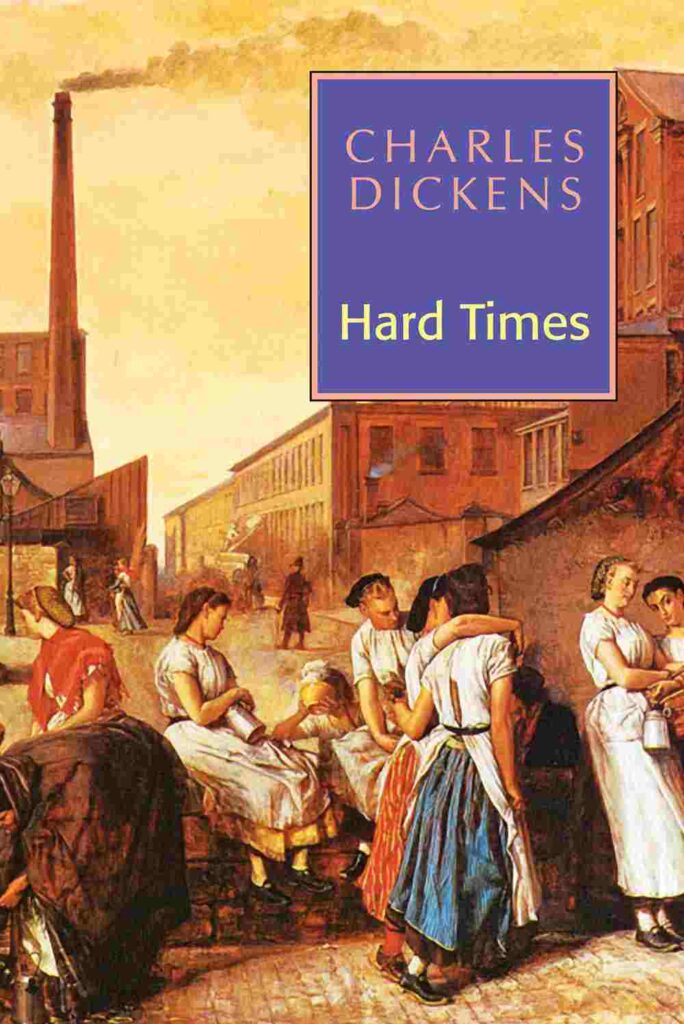
The Great Gatsby by F. Scott Fitzgerald
Set among New York City elites in the roaring ’20s, this book is considered one of America’s great literary products. Narrator Nick Carraway is befriended by his mysterious neighbor, Jay Gatsby. He proves to be a crucial link in Jay’s obsession with Nick’s cousin, Daisy. The metaphors and beautiful writing are notable throughout the book. The lessons about reliving the past are also significant. These elements make The Great Gatsby worth reading again and again.
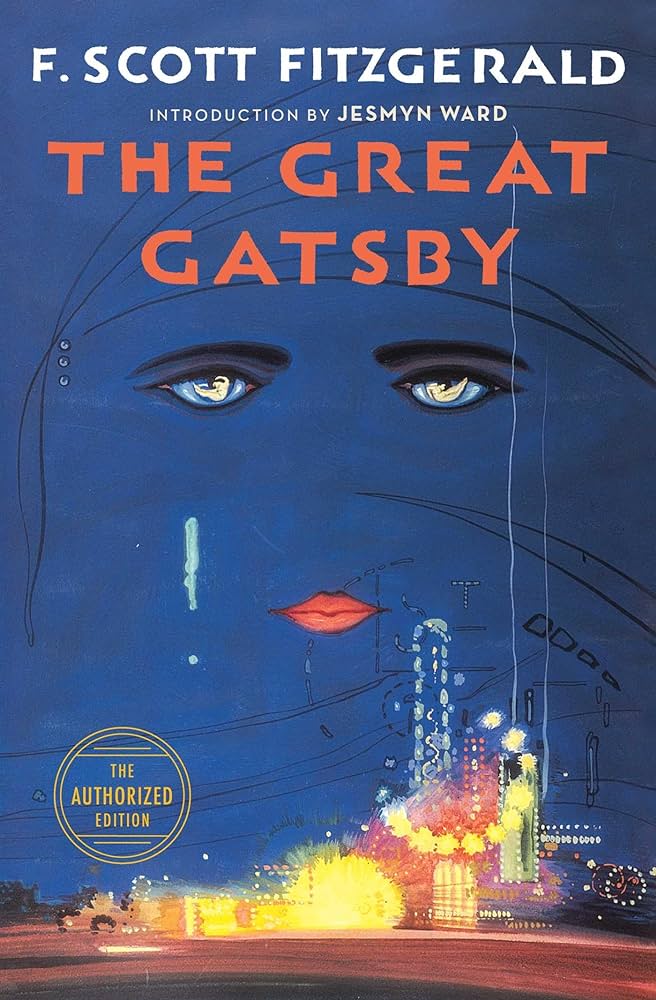
Empire of Pain by Patrick Radden Keefe
While other accounts of the opioid crisis have centered on the victims, Radden Keefe’s book turns the reader’s attention squarely on the perpetrators. It’s an ambitious, meticulously researched book. The book covers three generations of the Sackler dynasty. It exposes the dark source of their immense wealth. Reading this book book it’s hard not to rage at the impact of corporate greed on public health.
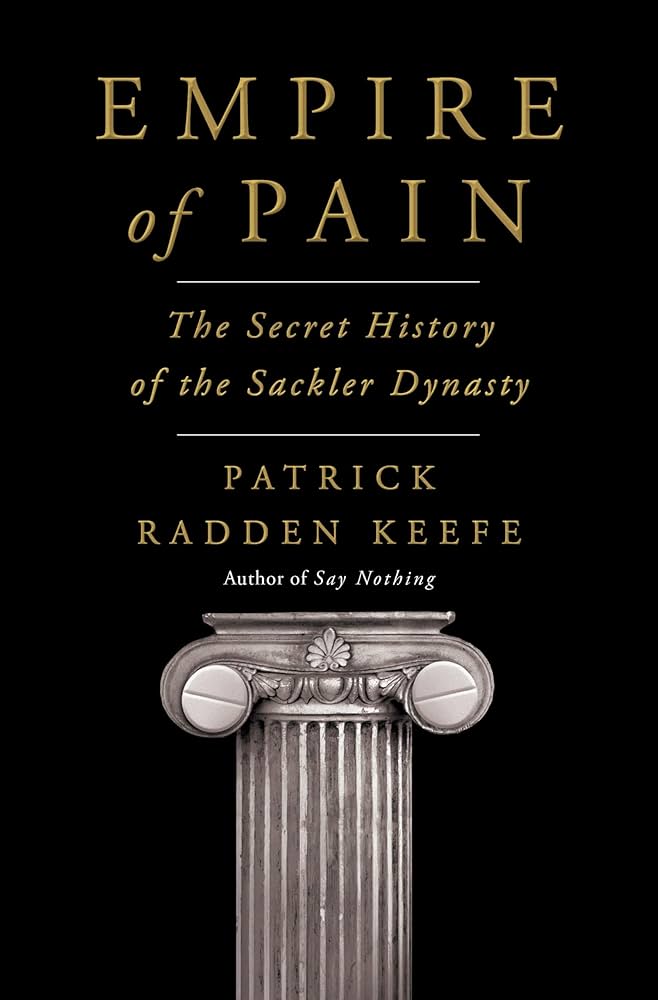
The Heart’s Invisible Furies by John Boyne
This sweeping novel flits between heartache and humor. It follows the life of Cyril Avery, an adopted child. He grapples with his homosexuality in conservative, post-war Catholic Ireland.
After a period of shame and self-loathing, Cyril makes several trips abroad. He travels to New York and Amsterdam. These trips give him the freedom to be more himself. On returning to Ireland, societal attitudes have shifted, allowing Cyril to reconcile with his past.
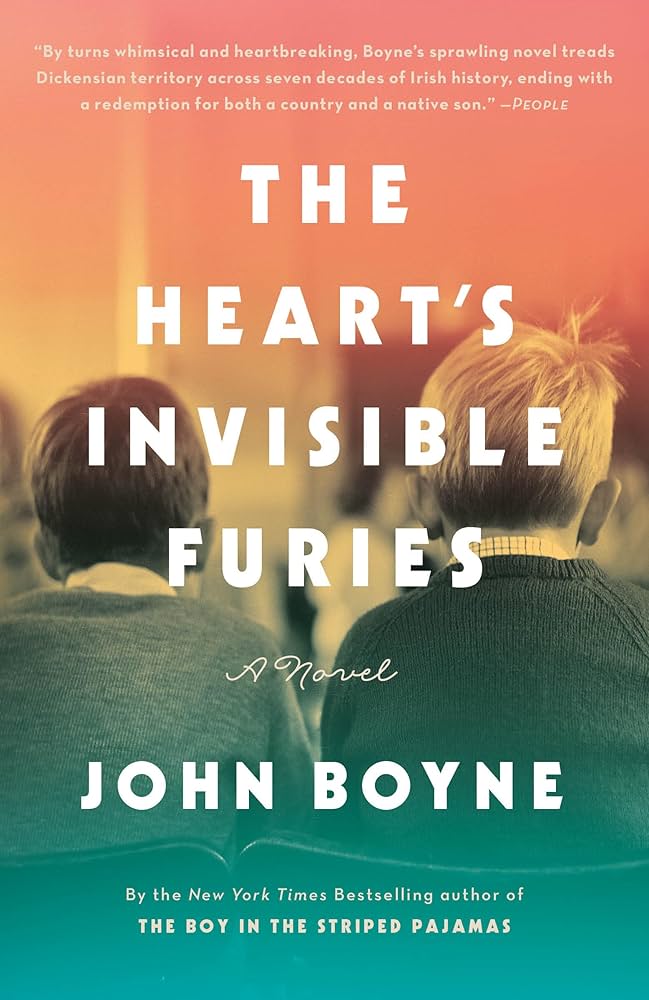
Swimming in the Dark by Tomasz Jedrowski
Jedrowski’s gay love story is set in the closing years of the Polish People’s Republic. The novel follows the life of Ludwik Glowacki, who falls in love with Janusz, at a summer camp. After an idyllic, whirlwind romance, the pair are forced to return to their lives. They return to a repressive communist regime in Poland. In Poland, their love is forbidden. Ludwik’s desire to resist political tyranny conflicts with Janusz’s focus on survival. This leaves the pair to navigate a turbulent situation.
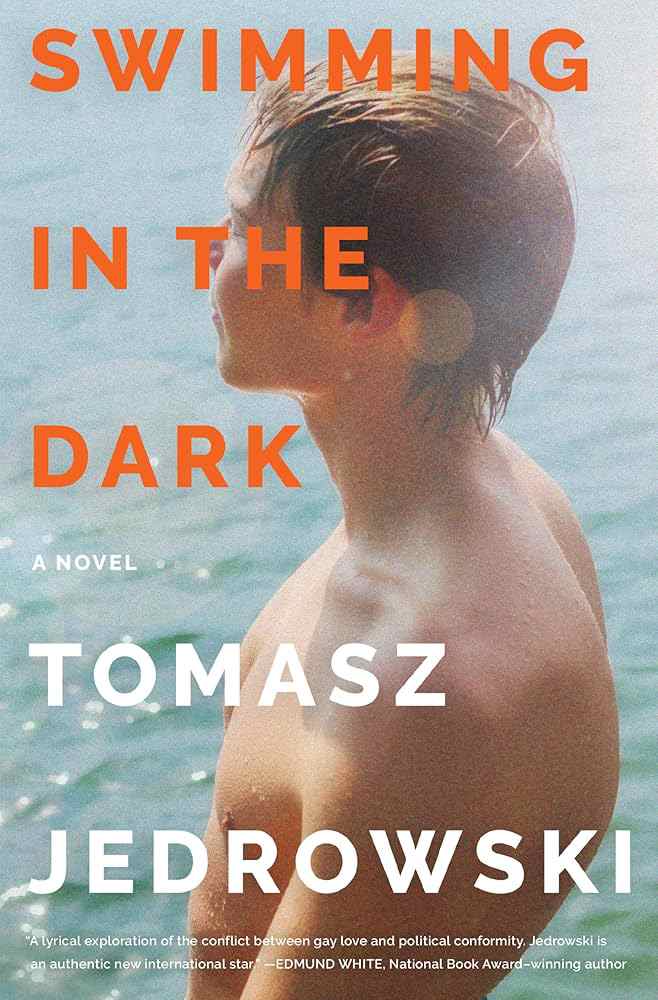
What Am I Doing Here by Bruce Chatwin
Bruce Chatwin was one of the great travel writers. His trips to the mountains of Patagonia and the Australian Outback were documented in acclaimed books. These books are In Patagonia and The Songlines. He was also the master of the magazine feature. What Am I Doing Here is a collection of dispatches and interviews. It spans the whole world and includes numerous colorful characters. These include yeti-hunting in Nepal and sailing down the Volga River in Russia. It also features working on a film with Werner Herzog in Ghana. Even the stories in less grand settings sing. A vignette from a dinner with fashion editor Diana Vreeland is barely half a page long, but all the more vivid for it.
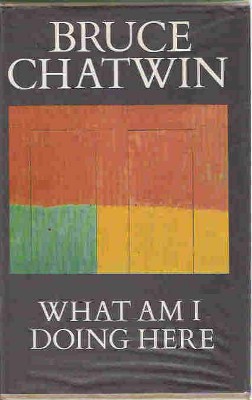
The Plot Against America by Philip Roth
Roth’s novel explores an alternate history of the 1940s. In this history, FDR loses his reelection bid to the charismatic Charles Lindbergh. Anti-Semitic sentiment goes from whispers to official United States policy. He takes you step by step to the logical conclusion of a Lindbergh presidency. It presents a scary, highly relevant warning about the dangers of prejudice. Allowing prejudice to dictate who is in public office can have dire consequences. We’re not trying to push a political agenda here. However, some of the similarities to real life are hard to ignore.
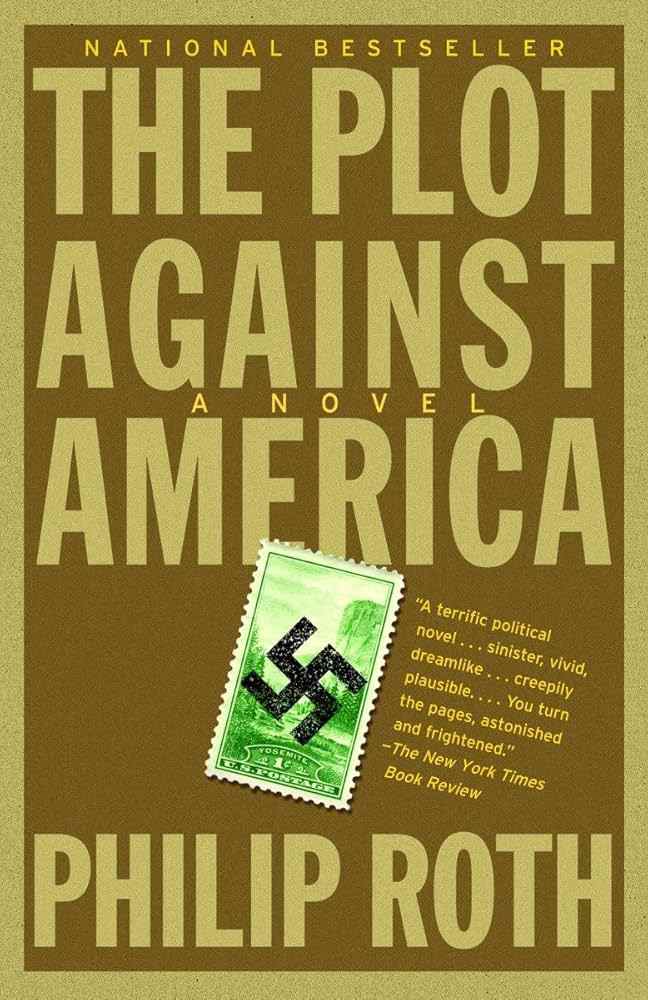
Read also: 10 Best Fantasy Books of All Time You Can’t Miss
The Hitchhiker’s Guide to the Galaxy Series by Douglas Adams
The Hitchhiker’s Guide series reads like one giant novel. It is actually a series of five books.
This is why you should read all of them. There are a thousand vignettes scattered throughout the series. These vignettes fill out a galaxy brimming with life and bureaucracy. They do this in a way that nothing really makes sense. It was never supposed to make sense. So let’s all just do the best we can, shall we?
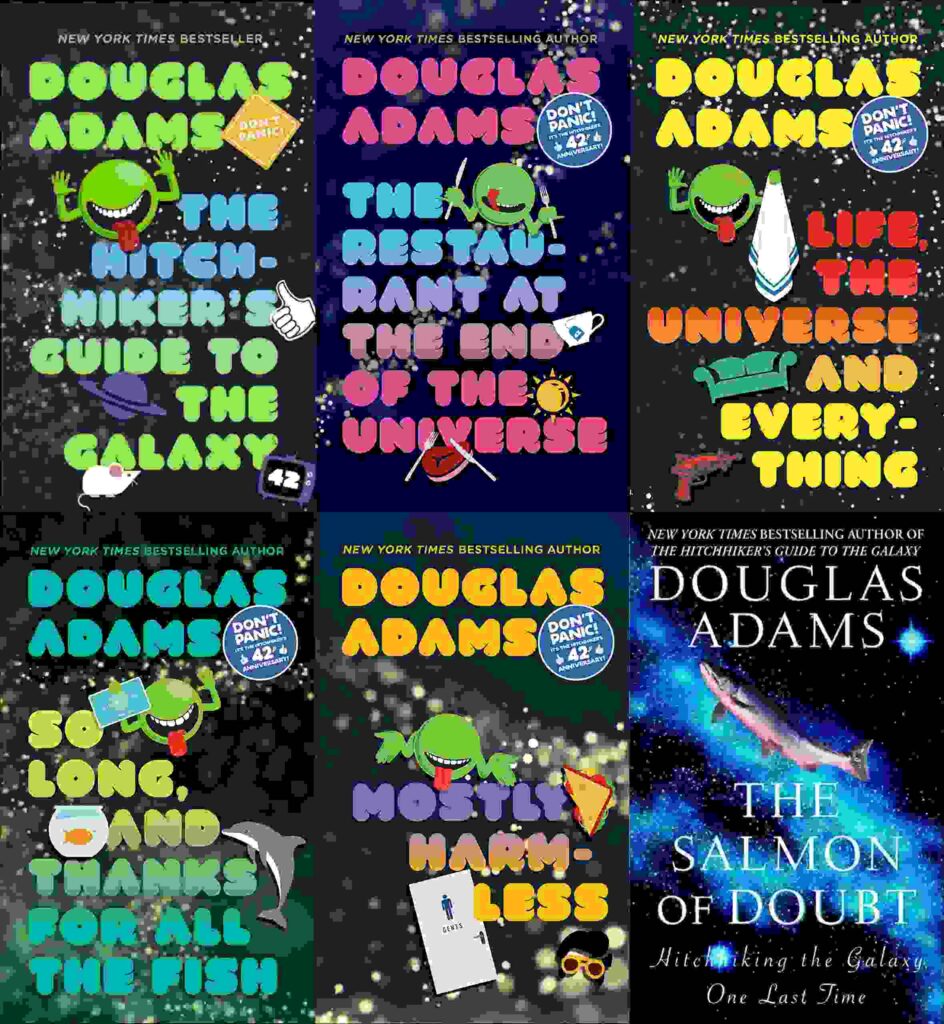
Preacher by Garth Ennis and Steve Dillon
Preacher is unapologetically what it is, and that’s a drug, sex, and violence fueled tear through the continental United States. There are Irish vampires, angels, and demons. There are also miracles, weird undead sex cults, and Louisiana swamp people. Additionally, there is one hell of a twisted Saint. But somehow, none of that distracts from the central plot line. The story focuses on one man trying to do the right thing. He struggles in a world that really, really doesn’t want him to succeed. If anything, it enhances it, making Jesse Custer’s struggle all the more human, despite him having a god in him.
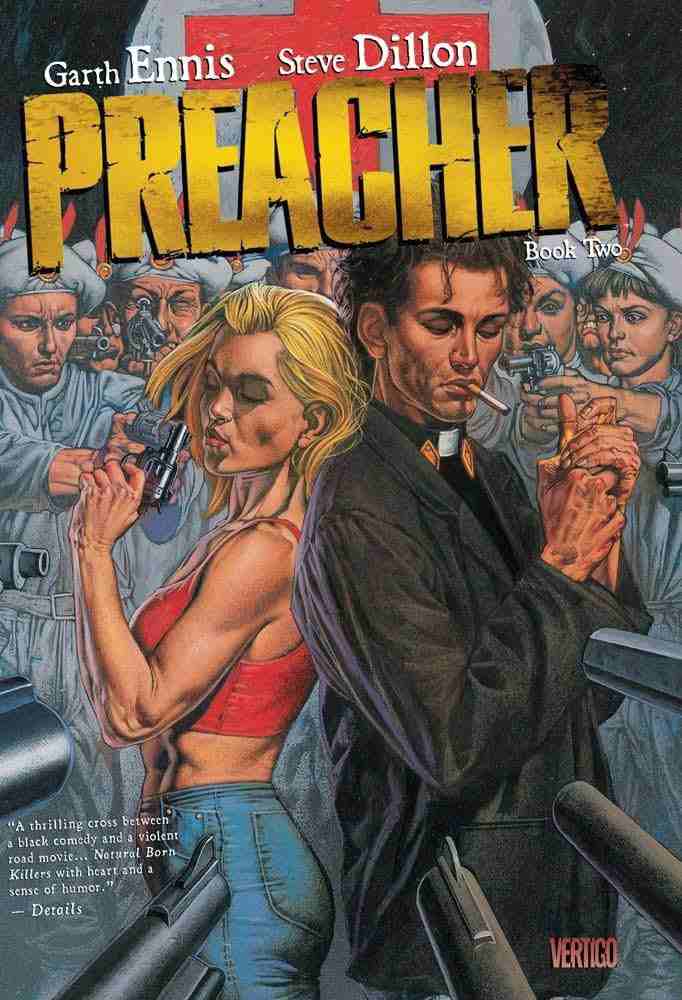
Catch-22 by Joseph Heller
“War is hell,” is the old adage we all know, but Catch-22 looks to modify that a bit. Instead, war becomes super weird. The book follows a bomber squadron in the Second World War whose collective sanity is slowly being eroded by whatever passes for power. Throughout it all, the main character keeps trying to prove himself insane enough to be kicked out of the Navy, which is precisely why he can’t be kicked out. Which is a catch 22 and, yes, this is where the phrase comes from. It’s a great extrapolation of quirks and idiosyncrasies we see in day to day life, only this time, they’re affecting war.
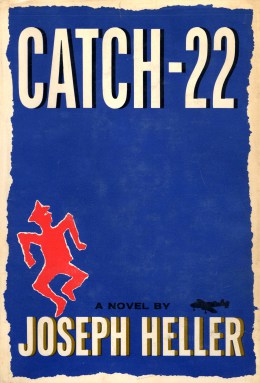
1984 by George Orwell
Set in a future dystopian world of perpetual war and constant government surveillance, our protagonist, Winston, is a quintessential everyman who works for the Ministry of Truth rewriting history to the government’s party lines rhetoric. He comes upon a secret organization which seeks to destroy the state, and together with a mysterious woman, joins the cause to fight against Big Brother. Although published in the late 1940s, it resonates today more strongly than ever. Will you be a lemming? Or will you be an independent thinker and actor?

Brave New World by Aldous Huxley
Similar to 1984, but whereas that novel portends changes in governmental rule, Aldous Huxley’s 1931 classic looks at technological changes that would change society — babies are born in laboratories, entertainment is formulaic rather than narrative, individuality is frowned up, and society is hugely stratified. Bernard Marx is on the top levels of society, but can’t seem to fit in. So he takes an ill-advised vacation, only to discover some unsettling things about the world he left behind.

How to Win Friends and Influence People by Dale Carnegie
The granddad of books about people skills, How to Win Friends and Influence People offers timeless advice. Its principles remain sound and applicable even 80 years later. Carnegie writes about skills like making people feel valued and appreciated. He emphasizes the importance of not coming across as manipulative, which can happen unintentionally more often than we think. The book teaches how to “win” people to your viewpoints and ideas. While its description may sound a little disingenuous, these are skills used by people every day. This book is a fantastic resource for improving your social game.

Roman Honor by Carlin Barton
The best book on honor — bar none. Barton masterfully explores how honor shaped the lives of ancient Rome from the early days of the Republic and all the way through the fall of the empire. She shows how small, intimate groups are vital for honor to survive and how imperialism kills it. This book is a hard read, but it’s well worth the effort. The insights are so brilliant that it’s almost startling, and even the footnotes are packed with fascinating asides.
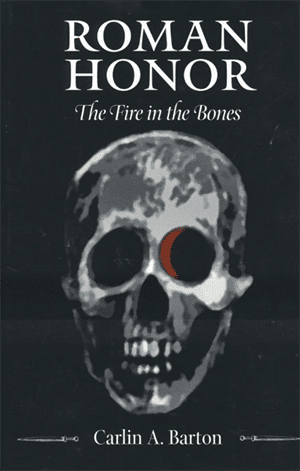
Read also: Top 10 Best Mystery Books You Must Read
Candide by Voltaire
Candide is an 18th-century French satire, in which Candide the optimist, student of the philosophy that he lives in the best of all possible worlds, travels all over the place and bad things happen to him the whole time. There’s death, assault, disease, confusion, kidnapping, and slavery, all based on real-world historical examples. The book doesn’t actually propose an alternate to optimism, so we have to assume it just doesn’t want people blinded by some cheap mantra like “best of all possible worlds.” Which, to be fair, is a decent lesson to take away and one that more people could benefit from.

Two Pints by Roddy Doyle
Two Pints is the book version of being the regular at the local bar. It’s Roddy Doyle’s imagined transcriptions of the conversations of two Irishmen down at their local and takes you through most of the major developments of 2011-2012. It’s a short one and you could probably down two pints in the time it takes to read it. In fact, do exactly that. Make sure they’re imperial.
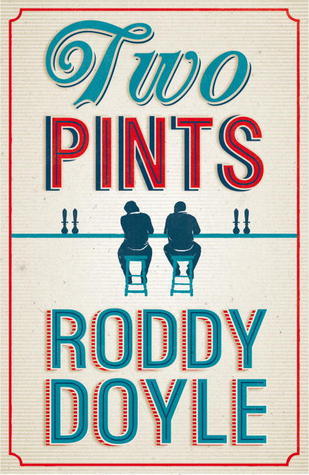
The Virginian by Owen Wister
It can be easy to forget why the Western genre was popular in the first place. But if you read The Virginian, you’ll see how the genre earned its popularity. It was the first of its kind and everything you’d expect from a Western is present, from shootouts to love to matching wits with the villain. Despite being more than a hundred years old, the book remains exceptionally readable and compelling and reminds you that there’s no excuse for not being a gentleman.
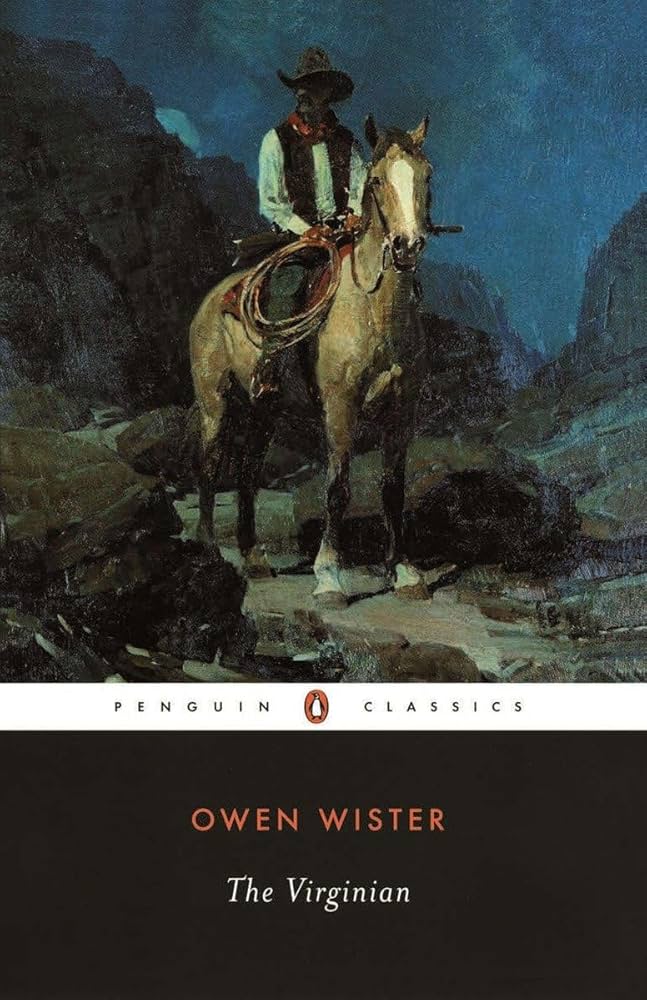
Guards! Guards! by Terry Pratchett
The Discworld series of novels is hard to start and more than one person’s been intimidated right out of exploring. Consider this your introduction to the world, as Guards! Guards! is the first in the Night’s Watch series. You get a really solid starting point that gives you everything you need to know about the world, wrapped up in a funny, genuine, and unexpectedly exciting story.
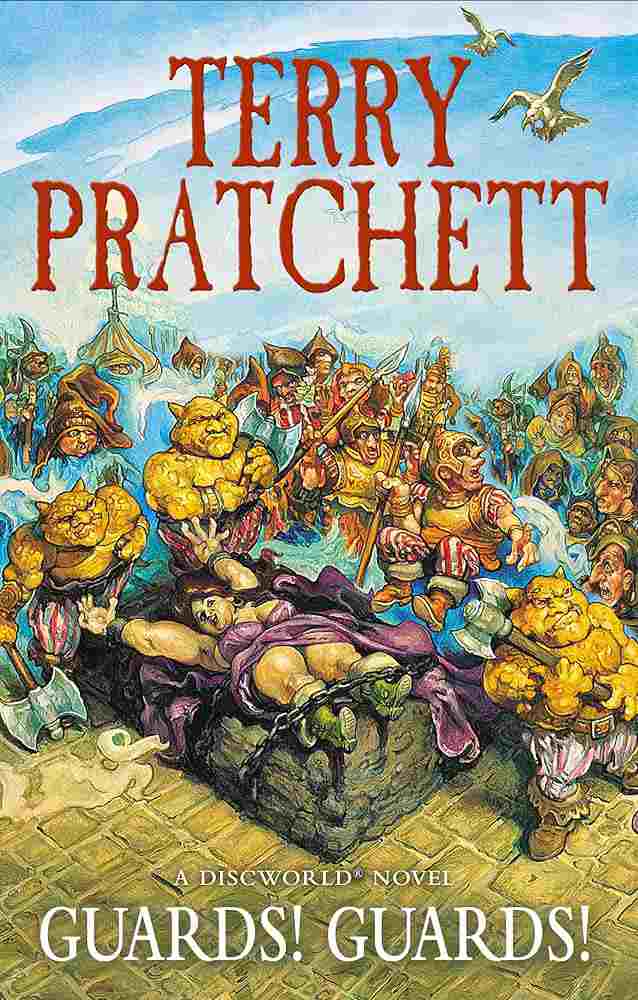
For Whom the Bell Tolls by Ernest Hemingway
Robert Jordan is a young dynamiter in the Spanish Civil War. He’s an American who’s volunteered to fight against Franco’s fascists, and is sent behind enemy lines to take out an important bridge to impede enemy forces from advancing. He lives in a rudimentary camp with anti-fascist Spanish guerillas, and comes to embrace their hearty way of life and love. And of course, there are some incredible battle scenes, which were informed by Hemingway’s own time as a correspondent in the Spanish Civil War.

Swiss Family Robinson by Johann David Wyss
After a terrible storm, the Swiss family Robinson becomes shipwrecked on a deserted island. With teamwork, ingenuity, and a bit of pluck, the group strives to overcome nature’s obstacles and create some semblance of community and civility within their new environs. A truly classic survival and adventure tale.
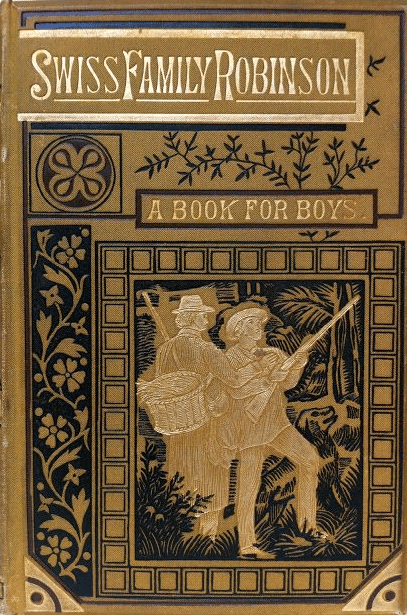
On the Road by Jack Kerouac
A defining novel of the Beat generation, On the Road is a fictional, but semi-autobiographical account of two friends’ road trips across America, against the backdrop of a counter-culture of jazz, poetry, drug use, and the drunken revelry of back-alley bars. Along their travels, they’re searching for what many young men are: freedom, ambition, hope, and authenticity.
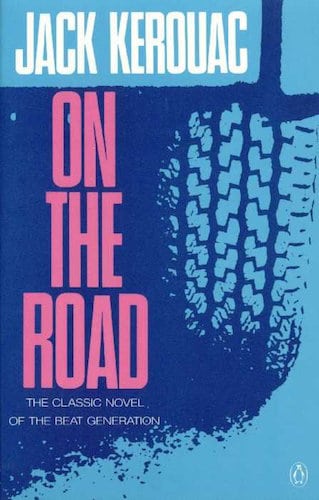
The Dharma Bums by Jack Kerouac
First published in 1958, The Dharma Bums came out a year after On the Road. It put the Beat Generation on the map.The Dharma Bums is one of Jack Kerouac’s most powerful and influential novels. The story focuses on two ebullient young Americans. One is Japhy Ryder, a mountaineer, poet, and Zen Buddhist. The other is Ray Smith, a zestful, innocent writer. Their quest for Truth leads them on a heroic odyssey. It takes them from marathon parties and poetry jam sessions in San Francisco’s Bohemia to solitude and mountain climbing in the High Sierras.
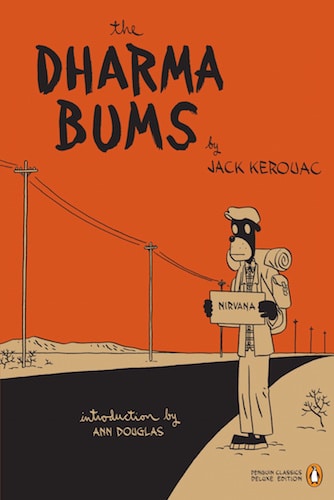
The Iliad & The Odyssey by Homer
These epic poems are some of the world’s oldest pieces of literature. They’ve been read, enjoyed, and studied for thousands of years, and for good reason. They are not only beautiful to the ear, but contain lessons that every man can learn about heroism, courage, and manliness. The Iliad takes place during a few weeks of the final year of the Trojan War, and details the heroic deeds of both Achilles and Hector, as well as a variety of other legends and stories. The Odyssey, a sequel of sorts, is about the great warrior Odysseus’ voyage home after the Trojan War. He faces various obstacles in his return to Greece, and we also see how his family back home dealt with his assumed death.
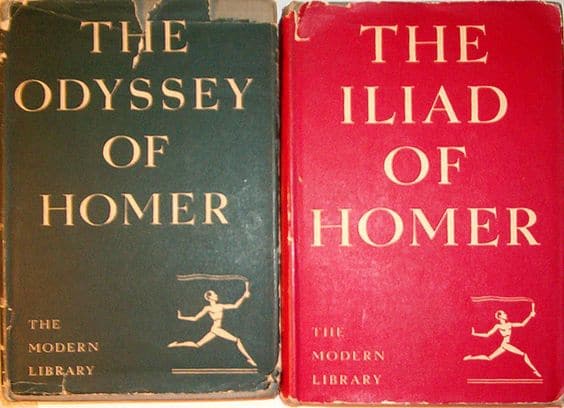
Walden by Henry David Thoreau
First published in 1854, Walden details Henry David Thoreau’s experiences over the course of two years, two months, and two days in a cabin he built near Walden Pond. The book is a philosophical reflection on simple living and nonconformity; Thoreau sets out to show readers the possibility of living deliberately, even while not entirely separating oneself from civilization.
The Lord of the Flies by William Golding
A novel about primal instincts and self-governance, set inside the story of a group of ordinary boys stuck on an uninhabited island. While fun at first, things devolve quickly when it comes time to actually think about long-term survival. It’s equal parts parable, political treatise, morality tale, and apocalyptic warning. Though published in 1954, its lessons and sentiments ring just as true today.
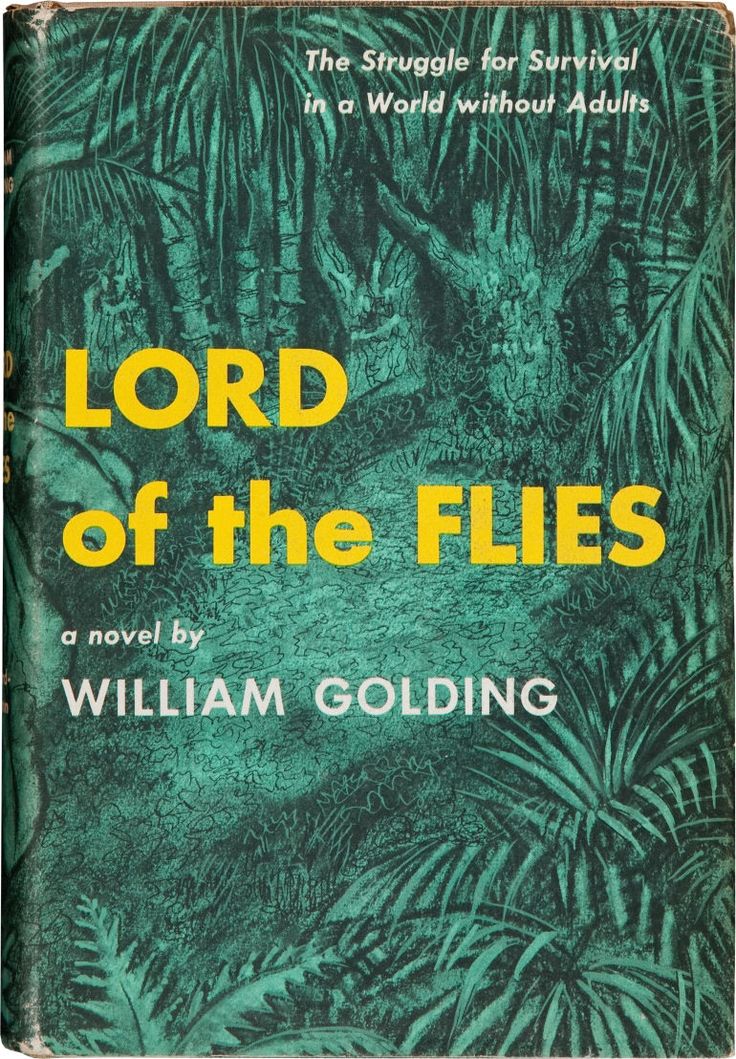
Conclusion
Each book on this list of best books for men can change your perspective and inspire your personal growth. After reading these 25 best books for men, you’ll enrich your understanding of different themes of book and feel the power reading brings to you.
Whether you’re looking for a quick overview or deeper understanding, Arvin provides personalized summaries to enhance your reading experience.
FAQs
The list includes themes such as personal growth, relationships, adventure, and masculinity, providing a well-rounded exploration of experiences and insights relevant to men.
The list includes classic titles like The Great Gatsby, which offers timeless lessons on humanity, morality, and society.
Consider your interests—whether you’re looking for motivation, adventure, or deep literary themes. Preview the book summaries or reviews to help you choose titles that resonate with your current life stage or goals



